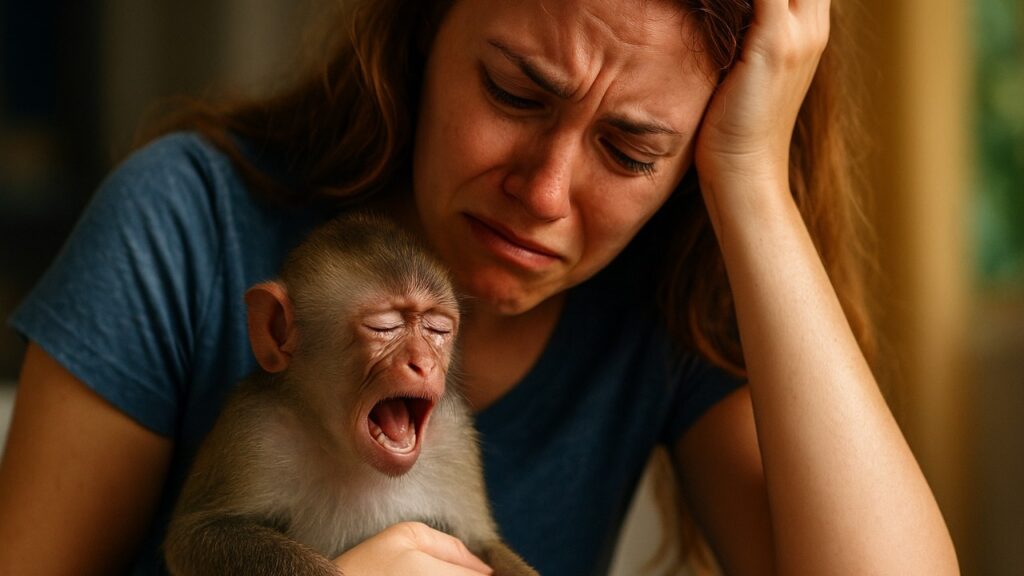
Raising a baby monkey in captivity is a heartwarming yet incredibly challenging journey. While many people may imagine it as simply caring for an adorable, playful creature, the reality is far more complex. Baby monkeys are intelligent, social, and emotionally sensitive animals. Taking them out of their natural environment, even with the best intentions, presents unique obstacles—both for the animal and the human caregivers.
One of the first challenges is bonding and social development. In the wild, baby monkeys are raised in tight-knit troops, constantly surrounded by their mothers, siblings, and extended family. These social interactions help shape their behavior, emotional regulation, and understanding of the world. In captivity, replicating this natural environment is nearly impossible. The caregiver must become a substitute parent, providing round-the-clock care, comfort, and stimulation. Even then, the baby may still experience loneliness and stress, especially if it was separated from its mother too early.
Another major issue is diet and nutrition. Baby monkeys have specific dietary needs that change as they grow. A balance of fruits, leaves, proteins, and specialized milk formulas is essential for healthy development. Feeding them the wrong foods can lead to serious health problems like digestive disorders or malnutrition. Caregivers must also deal with weaning at the right time—too early, and the monkey may not be physically ready; too late, and it can become overly dependent.
Behavioral management is perhaps one of the most exhausting aspects. Baby monkeys are extremely active, curious, and sometimes destructive. They love to climb, bite, test boundaries, and explore their surroundings in ways that often resemble toddler behavior—only much faster and more agile. If not given proper enrichment and discipline, they can become aggressive, anxious, or depressed. A bored monkey is a mischievous monkey, and managing their energy requires both patience and creativity.
On top of that, healthcare and emotional wellbeing must be monitored closely. Baby monkeys are susceptible to infections, parasites, and even emotional trauma. Vet visits, vaccinations, hygiene, and mental stimulation become daily priorities. And let’s not forget the long-term commitment: monkeys can live for decades. Raising one isn’t a short project—it’s a life-altering responsibility.
Despite all these hurdles, many caregivers form deep, emotional bonds with their baby monkeys. The moments of trust—when the monkey curls up in your arms, mimics your smile, or clings to you like a parent—are incredibly touching. But they come with the weight of knowing this creature depends on you in ways nature never intended.
Captivity can never fully replace the wild, but with love, understanding, and constant learning, it’s possible to provide a life that is safe, stimulating, and filled with affection. Still, it’s crucial for people to understand: raising a baby monkey isn’t just cute—it’s complicated.


